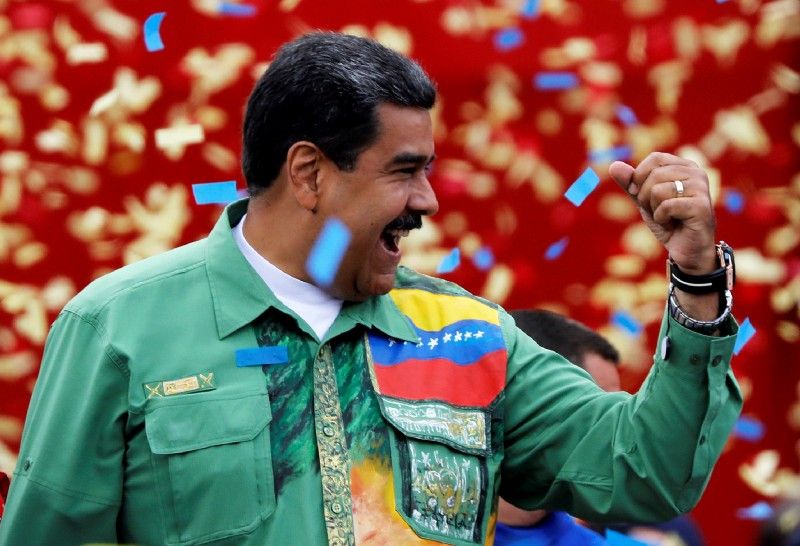I’m just going to say it: This Sunday’s presidential election in Venezuela doesn’t matter.
That’s not because President Nicolas Maduro is almost sure to win, despite trailing his main opponent in many polls. Nor is it because street protests have fizzled or because far fewer Venezuelans will vote than in the past. It’s not even because casting a ballot may seem like an afterthought in a place where inflation surpasses 13,000 percent and a gruesome humanitarian crisis has caused 2 million people to flee the country over the past two years.
The election doesn’t matter because elections aren’t really what keeps a fellow like Nicolas Maduro in power. What keeps him in power — as in other places where leaders rule over failing, deeply corrupted, or profoundly undemocratic systems — is the loyalty of economic and military elites.
As the world collapses around them, these powerful men and women must constantly calculate whether it’s safer to stick with a regime that is their main source of money, privilege, and protection, or to break with that regime and brave it on their own. In most cases, it’s more dangerous to leave than to stay. (Ask a Russian oligarch, for example, whether US sanctions make him any more likely to cross Vladimir Putin.)
But if the Venezuelan elections don’t matter, what happens afterwards most certainly does. The critical question is: Can Maduro hold together a collapsing country while keeping the carousel of money and privilege turning for the shrinking elite core of the Chavista regime? Is there a point at which the men with money or the men with guns turn against him? That, more than what happens in the streets or the urns, is what will determine Venezuela’s future.
Crazy counterintuitive consideration: Nicolas Maduro’s main opponent, a former governor named Henri Falcon, is a one-time Chavista loyalist who is currently leading Maduro in many polls. Maduro’s firm control over the electoral authorities enables him to skew things in his favor, but here’s an idea: What if Maduro lets Falcon win? Hear me out! If Maduro thinks Falcon’s wings can be clipped — and bear in mind that Chavista control over most key governing institutions would survive an opposition presidential victory — then it might be a winning strategy for Maduro to lose.
Falcon’s victory would make it almost impossible for the US, EU, or other Latin American countries to claim fraud and ratchet up sanctions; it would thoroughly discredit the main opposition, which boycotted the vote; and it would open the way for Maduro to negotiate a smooth, gradual, and safe exit from power. Crazy? Maybe. But I like to go into the weekend with a little crazy.
